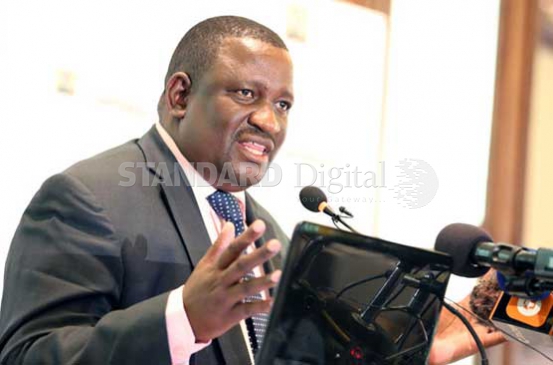
MOMBASA: CORD leader Raila Odinga has returned to the Coast to meet new ODM officials from the six counties and to launch the region’s shared economic blueprint under the Commonwealth of Coast Counties or Jumuiya ya Kaunti za Pwani (JKP).
Raila, who is also the Orange party leader, arrived in Mombasa last evening and held meetings with local leaders. He will be in Diani, Kwale, for the JKP function before holding a political rally in Msambweni Saturday.
Coast governors and professionals who have been meeting at the Jacaranda Indian Ocean Beach Resort since Thursday are piecing together a blueprint for economic takeoff in the region, where several areas have high poverty rates. All the governors and a majority of legislators from the mainly pro-CORD region have confirmed attendance of today’s launch.
JKP chairman Salim Mvurya said the team of experts has focused on tourism, infrastructure, education,water, land, health, research and innovation and information and communication technology as key sectors in the economic blueprint.
Mvurya, who is also Kwale governor and vice chairman of the Council of Governors, said the CORD leader was expected to close the three-day symposium that has been crafting the blueprint.
Raila’s attendance is viewed as a major endorsement of the economic integration that will see the counties embrace a joint approach to development programmes guided by the blueprint.
“The symposium was meant to lay the framework for developing the blueprint for the Jumuia. We and our development partners are going to collect relevant data for the development of the actual blueprint,” Mvurya explained.
Signed agreement
Experts involved in the development of the blueprint are representatives from Coast-based universities and those from consultancy firm Deloitte and Touche.
The blueprint will be used to develop the economies of Kwale, Mombasa, Kilifi, Tana River, Lamu and Taita Taveta counties.
Governors Hassan Joho of Mombasa, Amason Kingi (Kilifi), Issa Timamy (Lamu), Hussein Dado (Tana River) and John Mruttu of Taita Taveta signed an agreement endorsing the JKP in June.
County assemblies in the six counties have also passed motions giving a nod to the formation of the economic bloc and are expected to approve county government funds to be invested in JKP programmes.
The head of the JKP secretariat, Dr William Kingi, recently told The Standard on Sunday they would be working with consultants and professionals from Technical University of Mombasa, Pwani University, Taita Taveta University College and Ummah University to come up with the final blueprint and other development programmes.
“We will engage a consultant to work with the three universities at the Coast and come up with the economic blueprint,” Kingi explained.
Before the symposium was convened, JKP had plans for a Pwani Development Bank, Coast Tourism Board, Institute of Innovation and County Economic Transformation and Coast Bulk Water Company.
Dr Kingi had said the proposed institute would be used for research and continuous generation of data and capacity building to support JKP. The bulk water company is to be owned and run by the counties.
According to the secretariat, counties have been pursuing the establishment of a joint cancer treatment centre, a joint waste management plant, a standardised taxation system to attract investments, a ring water transport system for the counties, tackling the long-standing land problems, creating a common economic and fiscal policy, and utilisation of natural resources in a sustainable manner.
There is also a plan for the counties to jointly upgrade Coast General Hospital in Mombasa as a special referral hospital for the six devolved units.
“We want to have joint approaches to the long standing land and cultural grievances at the Coast. We have been sleeping on this issue and we need to come up with candid solutions to end hopelessness in the region,” Dr Kingi said.
Education system
Other joint programmes include joint diagnosis of the education system to improve performance, addressing youth radicalisation, peace-building and conflict resolution as well as dealing with the runaway unemployment.
“We intend to set up a joint initiative for the employment and welfare of youth, women and persons with disabilities,” Kingi explained.
“We are planning a regional economic conference in August and coming up with a blueprint similar to Vision 2030 that will guide initiatives for economic growth.”